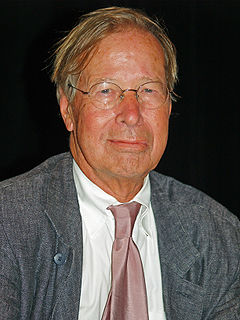Ronald Dworkin
Aspeto
| Ronald Dworkin | |
|---|---|
| Рональд Дворкін (2008) | |
| Nascimento | 11 de dezembro de 1931 Providence |
| Morte | 14 de fevereiro de 2013 (81 anos) Londres |
| Cidadania | Estados Unidos da América |
| Ocupação | advogado, filósofo, professor de direito |
Ronald Dworkin (?) foi um filósofo estadunidense.
Verificadas
[editar]- "Nós vivemos no e segundo o Direito. Ele faz de nós o que somos: cidadãos, empregados, médicos, cônjuges e proprietários. É espada, escudo e ameaça: lutamos por nosso salário, recusamo-nos a pagar nosso aluguel, somos obrigados a pagar multas ou mandados para a cadeia, tudo em nome do que nosso soberano abstrato e etéreo, o Direito, estabeleceu. E "discutimos" o que ele estabeleceu, mesmo quando os livros que supostamente registram seus comandos e diretivas estão silentes; nós agimos então como se o Direito apenas tivesse murmurado sua ordem, demasiado baixo para ser ouvida com nitidez. Nós somos súditos do império do Direito, vassalos de seus métodos e ideais, subjugados em espírito quando debatemos o que devemos portanto fazer".
- - We live in and by the law. It makes us what we are: citizens and employees and doctors and spouses and people who own things. It is sword, shield, and menace: we insist on our wage, or refuse to pay our rent, or are forced to forfeit penalties, or are closed up in jail, all in the name of what our abstract and ethereal sovereign, the law, has decreed. And we argue about what it has decreed, even when the books that are supposed to record its commands and directions are silent; we act then as if law had muttered its doom, too low to be heard distinctly. We are subjects of law's empire, liegemen to its methods and ideals, bound in spirit while we debate what we must therefore do.
- - Preface to Law's Empire
- "Se é para sermos moral e eticamente responsáveis, não pode haver retorno uma vez que descobrimos, como descobrimos, que alguns dos presupostos mais fundamentais desses valores estão equivocados. Brincar de Deus é certamente brincar com fogo. Mas é aquilo que nós mortais fizemos desde Prometeu, o santo patroeiro das descobertas perigosas. Nós brincamos com fogo e assumimos as conseqüências, porque a alternativa é a convardia em face do desconhecido".
- - "If we are to be morally and ethically responsible, there can be no turning back once we find, as we have found, that some of the most basic presuppositions of these values are mistaken. Playing God is indeed playing with fire. But that is what we mortals have done since Prometheus, the patron saint of dangerous discoveries. We play with fire and take the consequences, because the alternative is cowardice in the face of the unknown."
- - Sovereign Virtue, Cambridge, Massachusetts, 2000, p. 446
- Queremos viver vidas decentes e que valham a pena, vidas para as quais possamos olhar para trás com orgulho e não com vergonha. Queremos que as nossas comunidades sejam justas e boas e que as nossas leis sejam sábias e justas. Estes são objetivos extremamente difíceis, em parte porque as questões em jogo são complexas e intrigantes. Quando nos dizem que quaisquer que sejam as convicções que lutamos para alcançar não podem, de forma alguma, ser verdadeiras ou falsas, ou objetivas, ou parte do que sabemos, ou que são apenas movimentos num jogo de linguagem, ou apenas vapor das turbinas de nossas emoções, ou apenas projetos experimentais que deveríamos tentar e ver se nos servem, ou apenas convites a pensamentos com que poderíamos passar o tempo ou nos divertir, ou achar menos enfadonhos do que a maneira como costumávamos pensar, devemos responder que essas sugestões ultrajantes são todas falsas, apenas má filosofia. Mas estas são interrupções sem sentido, inúteis e cansativas, e devemos esperar que os espíritos pesados da nossa época, que as nutrem, se elevem em breve.
- - We want to live decent, worthwhile lives, lives we can look back on with pride not shame. We want our communities to be fair and good and our laws to be wise and just. These are enormously difficult goals, in part because the issues at stake are complex and puzzling. When we are told that whatever convictions we do struggle to reach cannot in any case be true or false, or objective, or part of what we know, or that they are just moves in a game of language, or just steam from the turbines of our emotions, or just experimental projects we should try for size, to see how we get on, or just invitations to thoughts that we might find diverting or amusing or less boring than the ways we used to think, we must reply that these denigrating suggestions are all false, just bad philosophy. But these are pointless, unprofitable, wearying interruptions, and we must hope that the leaden spirits of our age, which nurture them, soon lift.
- - Objectivity and Truth: You'd Better Believe It. Publicado em Philosophy & Public Affairs, Vol. 25, No. 2 (Spring, 1996), pp. 87--139.

